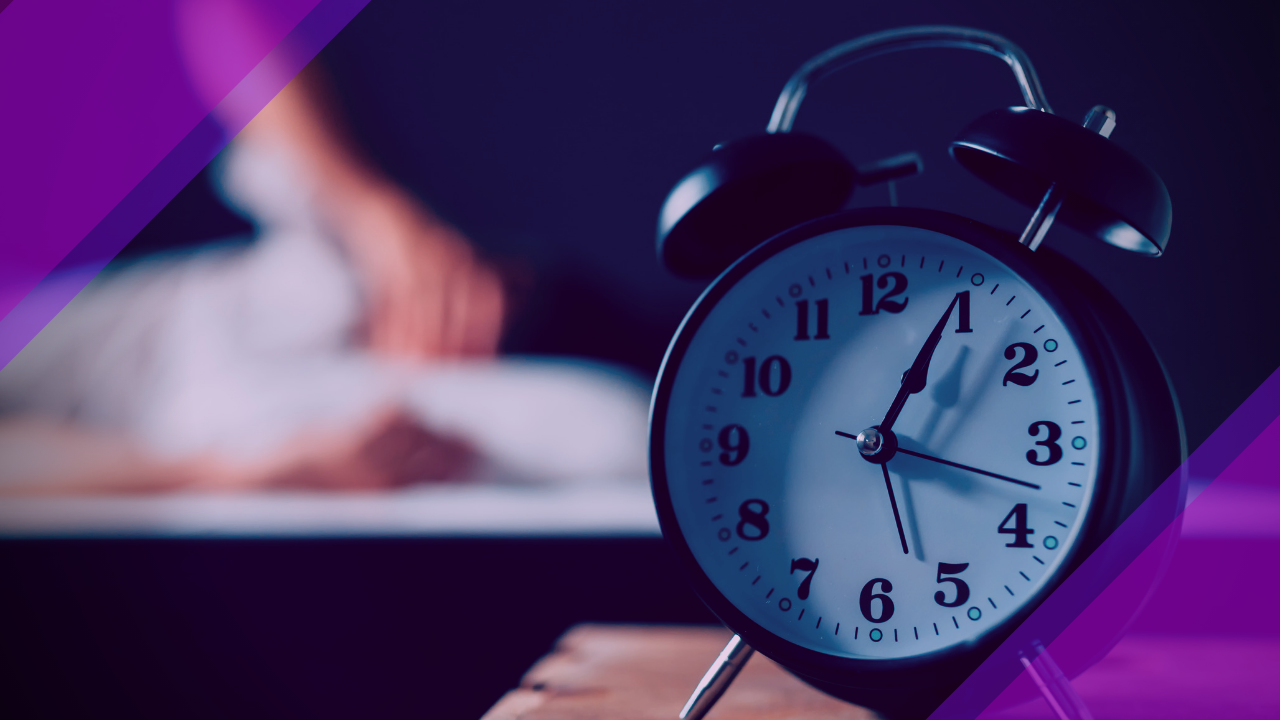
Sex, Body Composition & Sleep: Quality Matters
May 06, 2021
In any given week, a lot of research crosses my desk. Much of it I skim through and let slide on by. But two headlines caught my eye that I thought were worth a deeper look:
A good night’s sleep could do wonders for your sex life (well, no shit, Sherlock…but go on…)
And
Weight Gain Around Menopause Is Linked to Lack of Sleep (Another “water is wet” kinda headline, but I was intrigued…)
The interesting thing here is that all of these issues—body composition shifts, sex life woes, and difficulty sleeping—are very common concerns among women in the menopausal transition (and often beyond). And it often sets up a vicious circle that can become a downward spiral, leaving women wondering how to make it stop.
These studies suggest that sleep, in particular sleep quality, may just be the place to begin.
Good Sleep Good Sex (lots of media outlets picked this one up)
Let’s start with that first study, Associations of sleep and female sexual function: good sleep quality matters, which was published last month in Menopause. In it, researchers tapped more than 3,400 women, average age 53, from the Data Registry on Experiences of Aging, Menopause and Sexuality (DREAMS) and evaluated them for both sexual dysfunction and sleep quality.
In the end, they found that women who slept poorly were nearly twice as likely to report problems with their sex life, such as lack of desire or arousal. Key here is that it was /quality/ (how well you sleep during the night) not quantity (aka number of hours) of sleep that was linked to their sexual slump.
Burn Fat While You Sleep! (Sorry, slipped into Mainstream Magazine headline writing mode for a second…but seriously, the fat-burning part of this is interesting…)*
The weight gain study, which was presented on March 20th at the annual meeting of the Endocrine Society was interesting because they conducted the experiment on pre-menopausal women to tease out what was what when it came to sleep, estrogen, and body composition changes.
It’s no secret that body composition can change dramatically at this time of life. At the start of your menopausal transition, your rate of fat gain may double as lean muscle mass declines--a trend that can continue until about two years after you’re officially post menopausal, according to a 2019 analysis from the landmark menopause SWAN (Study of Women’s Health Across the Nation) study. Related research finds that visceral fat (a.k.a. deep belly fat) increases to 15 to 20% of your total body fat post menopause, up from about 5 to 8 percent pre-menopause.
Not surprisingly, considering all the important roles estrogen plays in muscle synthesis and overall metabolism, experts often point to hormonal declines as the culprit. But all women lose estrogen in menopause and not all have weight gain, so the researchers in this study took a look at the role of sleep, which is also known to influence weight management and, as we know, is also often disrupted during menopause.
In this study, they brought a group of well rested pre-menopausal women into the lab and spent three nights giving them a preview of menopausal sleep, sending them to bed an hour earlier than usual (aiming to give them 9 hours in bed) and setting off an alarm periodically that kept them awake for two minutes. So by morning, they got 8 hours of total sleep, but it was broken up in a way that left them with one hour of tossing, turning, and otherwise awake time.
They also gave half the group a drug called leuprolide, which temporarily suppressed their estrogen levels, again, to mimic what happens during menopause.
In the end, both the disrupted sleep and the suppressed hormones messed with the women’s metabolism. Low estrogen and fragmented sleep (even when the women got adequate total hours of sleep) decreased the amount of fat they burned for energy, which over time could increase fat storage.
In short, yes, the drop in estrogen is partly to blame, but it’s exacerbated by the sleep disruptions—whether because of hot flashes, night sweats, anxiety, and other menopausal symptoms—that come at this time of life.
Like the sex study, these unfavorable side effects were pinned to the lack of quality, not the total quantity, of the women’s sleep.
Okay, Got It, But My Sleep Still Sucks…
If you haven’t already, I highly recommend checking out Episode 20 of Hit Play Not Pause with the sleep scientist Dr. Sophie Bostock.
She goes into great detail about how to optimize the three systems needed for quality sleep: strong circadian rhythms, sleep pressure, and stress management.
Highlights of that advice include waking up at the same time daily, getting plenty of daylight exposure, keeping a cool, dark bedroom, limiting caffeine and alcohol, and developing a soothing bedtime routine.
If you’ve tried most of the typical advice and you’re still tossing and turning, she offers a few other tips you may not have tried:
Push back your bedtime. If you’re not falling asleep or settling into deep sleep, you may want to push your bedtime back, at least temporarily until you are genuinely tired. “It’s one of the most powerful things you can do to actually improve the depth of your sleep through the night,” she says. That’s important because again, it’s quality, not quantity we’re shooting for here.
Breathe deep. Underlying stress can wake you up in the middle of the night. Doing periodic deep breathing exercises throughout the day can lower it. The North American Menopause Society (NAMS) recommends practicing this simple breathing exercise a few times a day:
Sit in a straight-back chair with both feet on the floor.
Rest hands on the abdomen.
Slowly count to four while inhaling through the nose and feel the abdomen rise.
Hold that breath for a second.
Then, slowly count to four while exhaling through the mouth—let the abdomen slowly fall.
Repeat this exercise 5 to 10 times
Try cognitive behavioral therapy for insomnia (CBT-I). If you have tried absolutely everything to no avail, Dr. Bostock and others recommend trying CBT-I. It’s a short, structured approach to combating insomnia, which works by breaking the cycle that can lead someone to associate bedtime with lack of sleep.
Research on menopausal women shows it reduces insomnia severity and improves sleep efficiency. A 2019 study on menopausal women with insomnia found CBT-I worked better than other interventions for treating their insomnia. There’s even a free app: CBT-i Coach.
Talk to your doc about MHT. Finally, if your symptoms are so disruptive that any prayer of a solid night of shuteye seems like an unattainable dream, talk to your doctor about menopausal hormone therapy (MHT). Though MHT isn’t a sleep aid per se, research shows that if hot flashes and night sweats are your primary sleep wreckers, it can improve the quality of your sleep.
Get Feisty 40+ in Your Inbox
We hate SPAM. We will never sell your information, for any reason or send you emails that suck!


